On June 16, at the 9th session, the 15th National Assembly officially passed the Law on Teachers - the first specialized law to fully regulate the legal status, rights, obligations and policies for teachers. The law consists of 9 chapters and 42 articles, effective from January 1, 2026, and is expected to create a breakthrough in caring for, honoring and developing the teaching staff - the key force in the country'seducation cause.
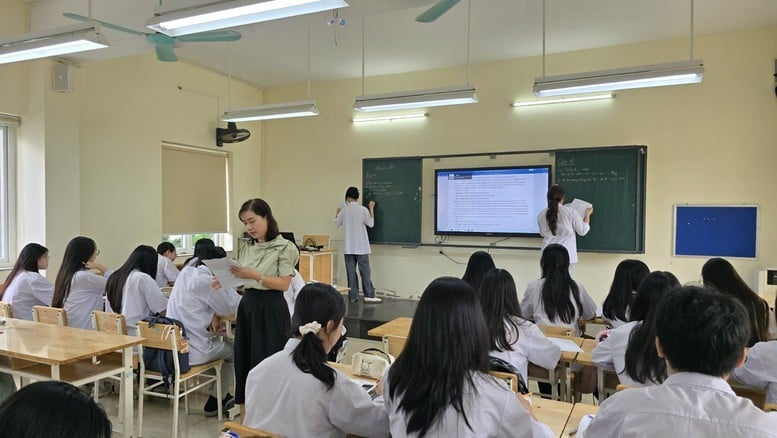
First time establishing full legal status for teachers
One of the important new points of the Law on Teachers is establish a clear and complete legal status for teachers , including those in public and non-public educational institutions. Accordingly, teachers in non-public institutions are recognized as specialized practitioners, with professional standards, and with rights and obligations similar to those of public teachers – instead of being considered only as contract workers as before.
The law also affirms The right to respect and protect the honor and dignity of teachers , and at the same time, add regulations prohibiting organizations and individuals from disseminating information without a conclusion from the authorities. The mechanism for strictly handling acts that insult the honor and reputation of teachers is a strong step forward in maintaining a safe and civilized educational environment.
Teachers' salaries will be "ranked highest" in the administrative career system.
Another groundbreaking policy is the regulation that: “Teachers’ salaries are ranked highest in the administrative career salary scale system.” The Government will be responsible for specifying this content through sub-law documents.
The Ministry of Education and Training is currently drafting a Decree on salary policies, allowances, support and attraction regimes for teachers. In particular, it proposes to rearrange the salary tables of some teacher positions (such as preschool, general education, vocational education teachers, etc.) to ensure the principle of "highest ranking", while creating consistency in the salary table system for civil servants in all sectors.
In addition to salary, teachers also enjoy special allowances such as: responsibility allowance, preferential allowance, allowance for disadvantaged areas, inclusive education, seniority, mobility... , contributing to improving income and raising living standards.
Comprehensive support policy – attracting high quality human resources
The Law on Teachers expands and unifies the system of policies to support teachers in a comprehensive and inclusive manner. Specifically: Support for public housing or rent for teachers in particularly difficult areas; periodic health allowance, vocational training for all teachers, regardless of public or non-public; priority in recruitment, transfer, and reception for teachers working in remote, border and island areas; mechanism to attract high-quality human resources in fields such as science, technology, digital transformation, vocational education...
In particular, preschool teachers who wish can retire up to 5 years earlier without a reduction in pension , if they have paid social insurance for 15 years. On the contrary, teachers with high academic degrees and working in specialized fields are entitled to work longer than retirement age to retain quality human resources.
Standardizing staff - ensuring education quality
The law unifies two systems of standards (professional standards and title standards) into a single system: Titles are associated with professional competency standards , applicable to both public and non-public sectors. This creates a common quality level, contributing to equality in access to quality education among student groups .
The recruitment of teachers according to the Law will also have to associated with pedagogical practice , ensuring quality input, appropriate to each level of education and training.
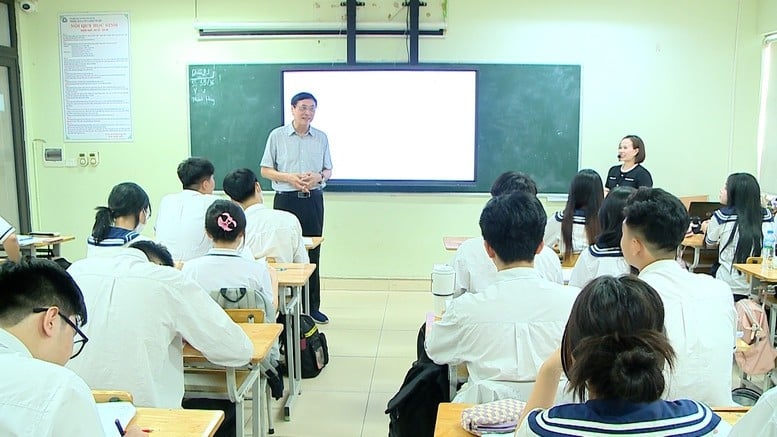
Professional ethics are legalized, protecting the reputation of teachers.
For the first time, teachers' ethics are regulated in a law with specific rules of conduct towards learners, colleagues, parents and society. The responsibility to set an example is identified as an inseparable part of the teaching profession – demonstrated through the exemplary, dedicated, integrity .
The law also adds a mechanism to protect teachers from acts of insulting honor and dignity , especially prohibited spreading false information on social networks when there is no conclusion from the authorities. At the same time, it is also required to strictly handle violations of professional ethics to maintain pedagogical standards.
Empowering the education sector to proactively recruit and develop staff
A notable new point is that The authority to recruit and employ teachers is delegated to the education sector . Specifically, heads of public higher education and vocational education institutions have the right to autonomously recruit teachers. The Minister of Education and Training is delegated the authority to regulate recruitment for general education, preschool, and continuing education institutions.
The Law also stipulates that the Ministry of Education and Training is the agency in charge of developing the strategy, team development plan , coordinate with ministries, branches and localities to determine Total number of teachers , submit to competent authority for approval.
Immediately after the law was passed, the Ministry urgently built 2 decrees and nearly 20 circulars guiding the implementation are expected to be issued at the same time as the Law takes effect on January 1, 2026. This is a necessary preparation step to ensure that the law is implemented in a synchronous and effective manner.
Source: https://baolangson.vn/chinh-thuc-thong-qua-luat-nha-giao-xac-lap-vi-the-nang-tam-chinh-sach-cho-doi-ngu-thay-co-giao-5050256.html








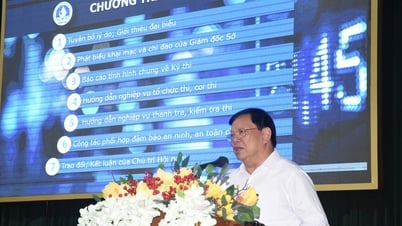





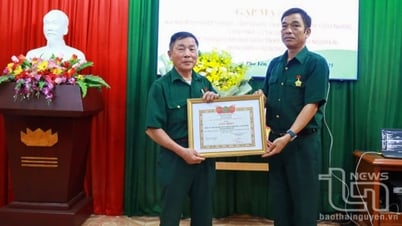
















































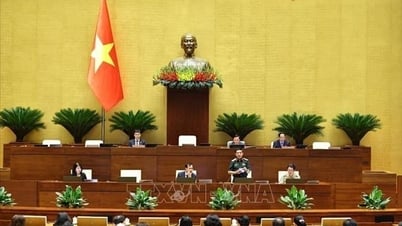

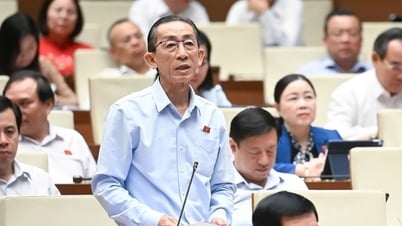









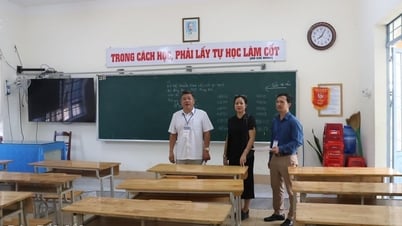
















Comment (0)